

| Cruise Region : Pacific cruises, South America / Antarctica |
| Company : Azamara Cruises |
| Ship : Azamara Quest |
| Journey Start : Mon 24 Jan 2028 |
| Journey End : Thu 03 Feb 2028 |
| Count Nights : 10 nights |
| Day | Date | Port | Arrival | Departure |
|---|---|---|---|---|
| 1 | 24.01 Mon | Valparaíso / Chile | 18:00 | |
| 2 | 25.01 Tue | Day at sea / Sea | ||
| 3 | 26.01 Wed | Puerto Montt / Chile | 11:30 | 20:00 |
| 4 | 27.01 Thu | Mykonos / Greece | 08:00 | 16:00 |
| 5 | 28.01 Fri | Puerto Chacabuco / Chile | 08:00 | 18:00 |
| 6 | 29.01 Sat | Day at sea / Sea | ||
| 7 | 30.01 Sun | Chilean fjords / Chile | 08:00 | |
| 8 | 31.01 Mon | Chilean fjords / Chile | 18:00 | |
| 9 | 1.02 Tue | Punta Arenas / Chile | 08:00 | |
| 10 | 2.02 Wed | Punta Arenas / Chile | 07:00 | |
| 11 | 3.02 Thu | Ushuaia / Argentina | 06:00 |
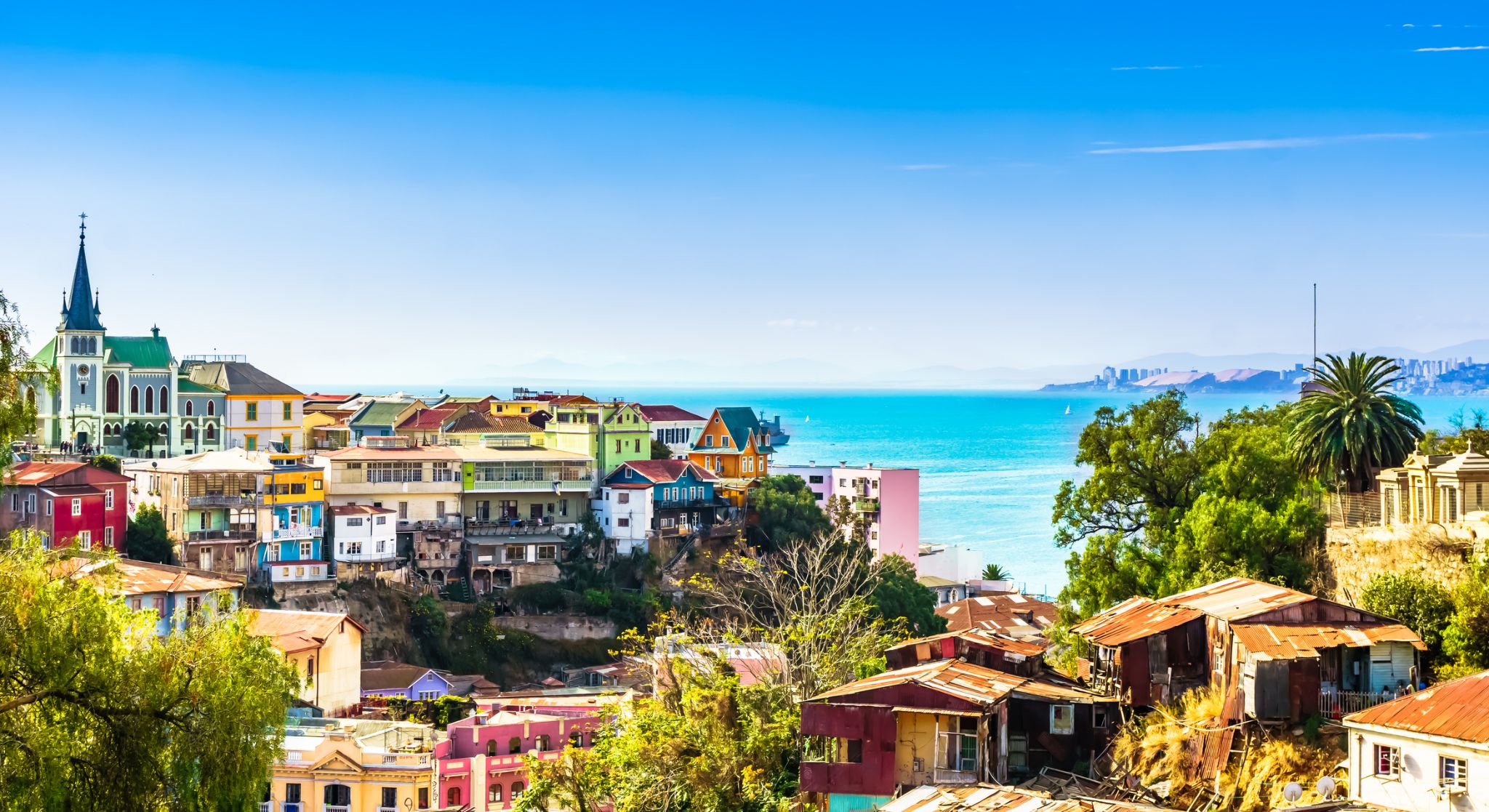
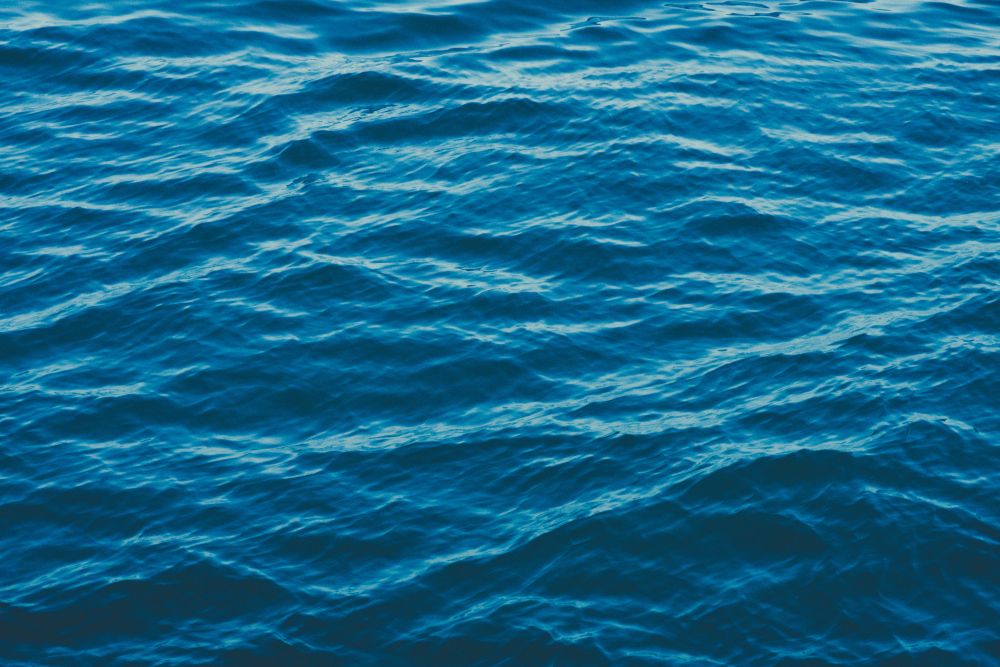
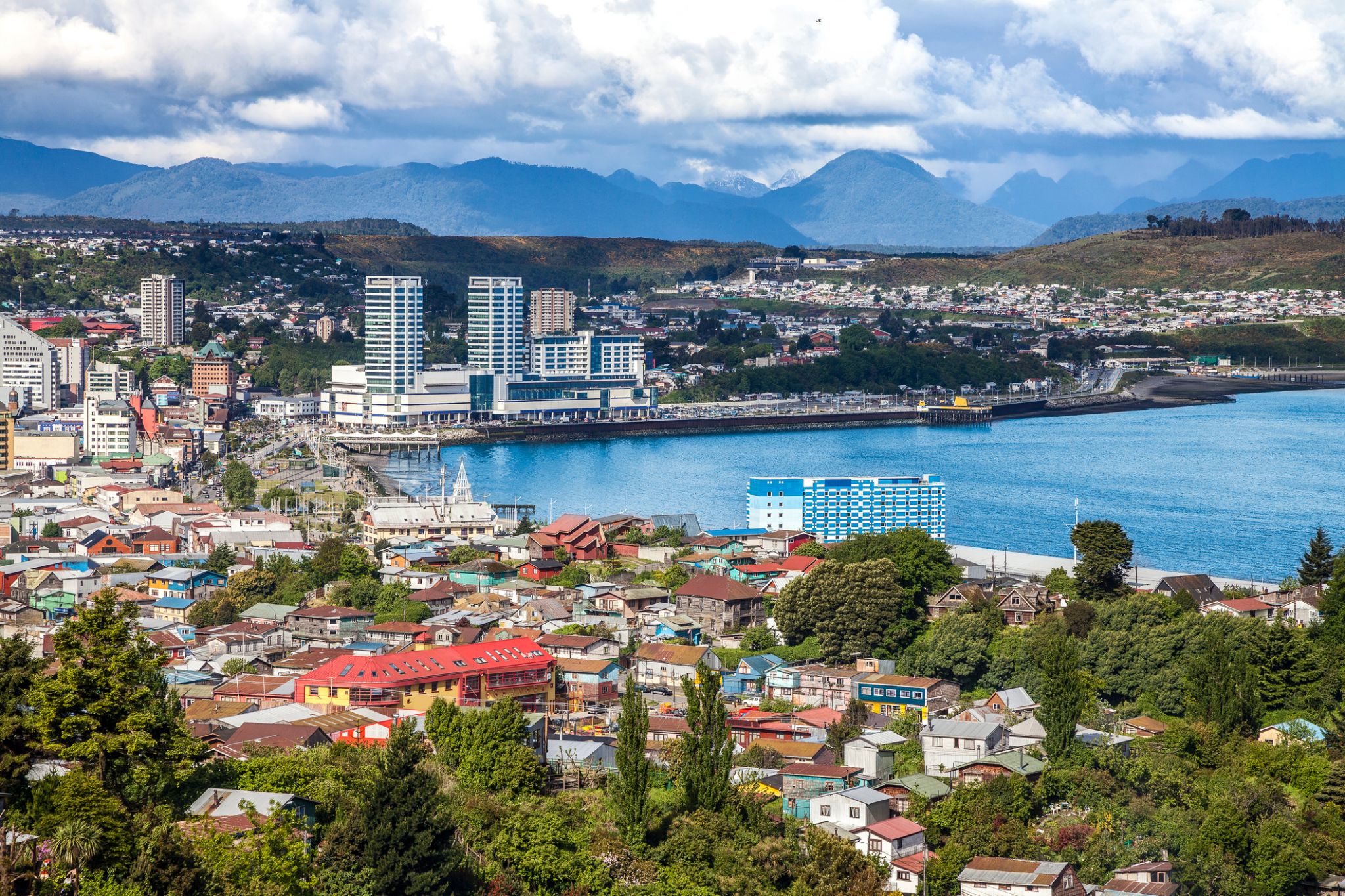
Puerto Montt is a port city and commune in southern Chile, located at the northern end of the Reloncaví Sound in the Llanquihue Province, Los Lagos Region, 1,055 km to the south of the capital, Santiago. The commune spans an area of 1,673 km2 (646 sq mi) and has a population of 245,902 in 2017. It is bounded by the communes of Puerto Varas to the north, Cochamó to the east and southeast, Calbuco to the southwest and Maullín and Los Muermos to the west.
Founded as late as 1853 during the German colonization of southern Chile, Puerto Montt soon outgrew older neighboring cities due to its strategic position at the southern end of the Chilean Central Valley being a gateway city into Chiloé Archipelago, Llanquihue and Nahuel Huapi lakes and Western Patagonia.
Puerto Montt has gained renown and grown significantly due to the rise of Chile as the second largest salmon producer of the world during the 1990s and 2000s. However, the Chilean salmon aquaculture crisis of the late 2000s resulted at least temporarily in severe unemployment and exposed weaknesses in the local economy. The city's cultural heritage mixes elements of Chiloé culture with German heritage although the city has attracted a significant number of newcomers from all over Chile in the last 30 years due to employment opportunities.
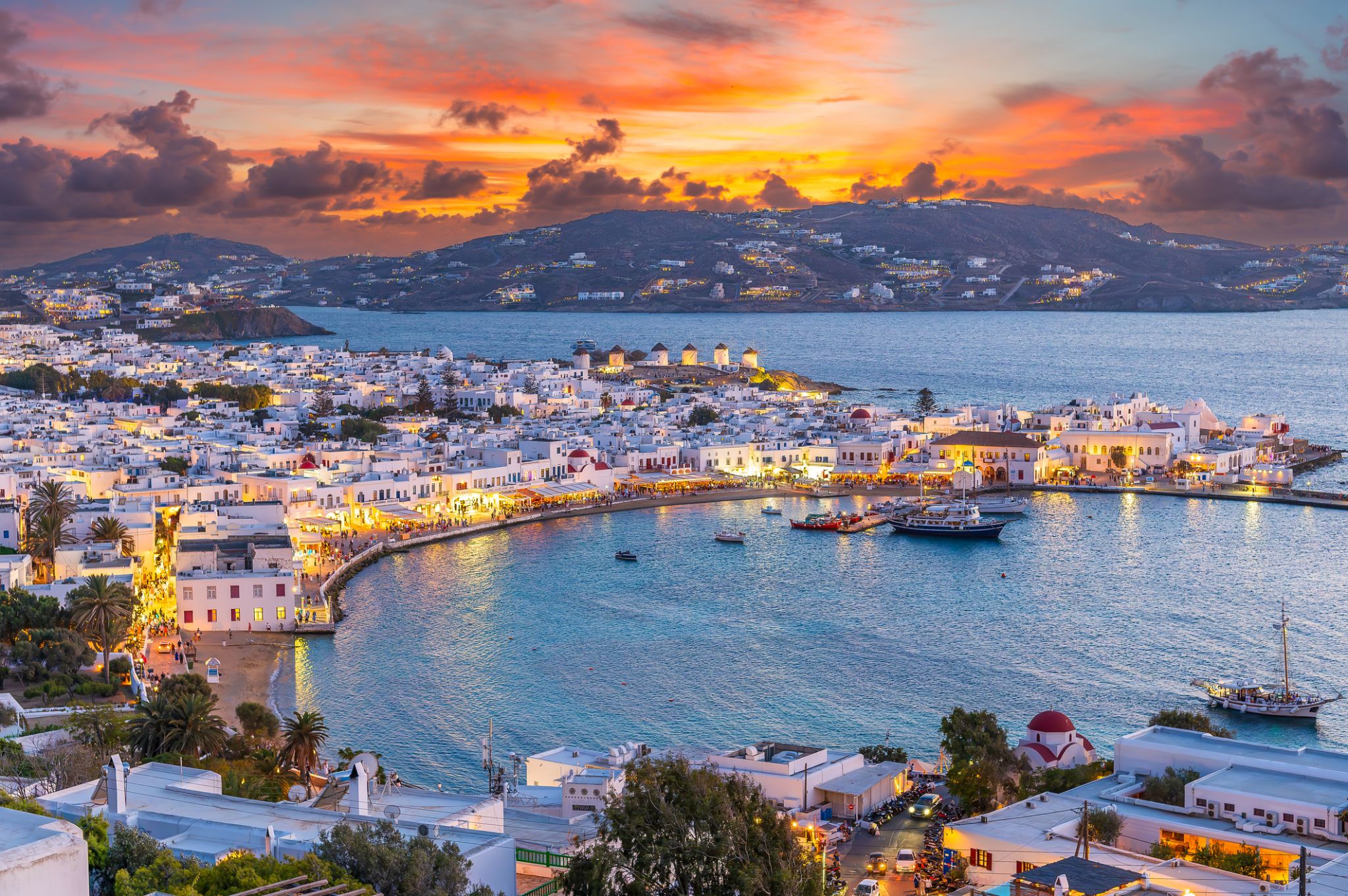
Mykonos is a Greek island, part of the Cyclades, lying between Tinos, Syros, Paros and Naxos. The island spans an area of 85.5 square kilometres (33.0 sq mi) and rises to an elevation of 341 metres (1,119 feet) at its highest point. There are 10,134 inhabitants (2011 census), most of whom live in the largest town, Mykonos, which lies on the west coast. The town is also known as Chora (i.e. the Town in Greek, following the common practice in Greece when the name of the island itself is the same as the name of the principal town).
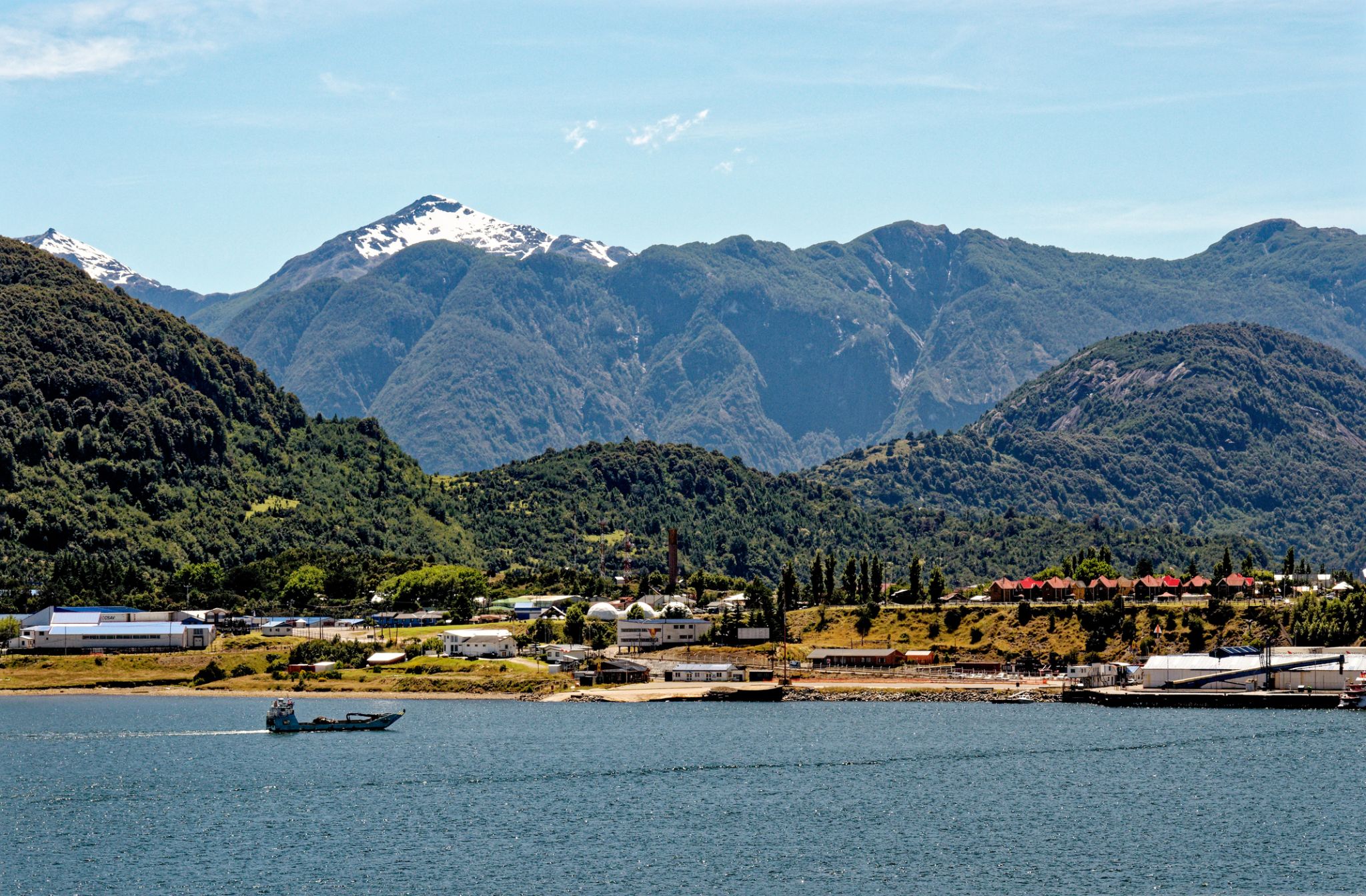

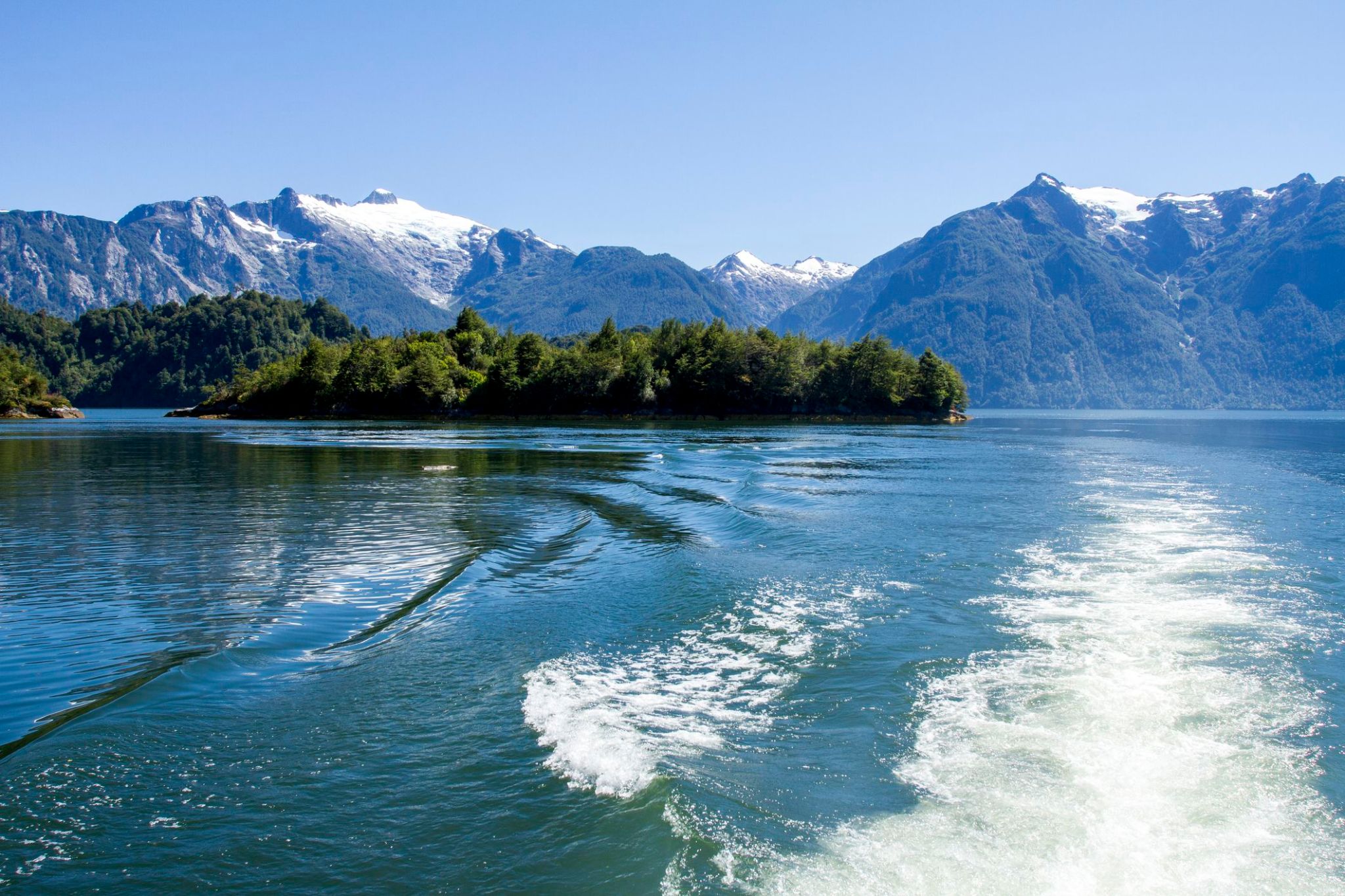
Not only Europe can boast the enchanting nature of the Norwegian fjords, but also Chilean fjords. The Chilean fjords consist of islands of various sizes, islets, enormous boulders, and ice formations emerging from the water, showcasing a range of colors — from snow-white to greenish. The glaciers on the rocks and mountain slopes create the feeling of theatrical scenery. The Chilean fjords delight visitors with their landscapes, where land and sea merge into a labyrinth of islands, fjords, rivers with tributaries, lakes, and hills covered in ancient trees.
The Chilean fjords are a unique place that has miraculously escaped human interference. When the mist dissipates under the sun, a magnificent panorama of the Andes, the cold waters of the Pacific Ocean, and lush emerald forests unfolds before your eyes.

Not only Europe can boast the enchanting nature of the Norwegian fjords, but also Chilean fjords. The Chilean fjords consist of islands of various sizes, islets, enormous boulders, and ice formations emerging from the water, showcasing a range of colors — from snow-white to greenish. The glaciers on the rocks and mountain slopes create the feeling of theatrical scenery. The Chilean fjords delight visitors with their landscapes, where land and sea merge into a labyrinth of islands, fjords, rivers with tributaries, lakes, and hills covered in ancient trees.
The Chilean fjords are a unique place that has miraculously escaped human interference. When the mist dissipates under the sun, a magnificent panorama of the Andes, the cold waters of the Pacific Ocean, and lush emerald forests unfolds before your eyes.
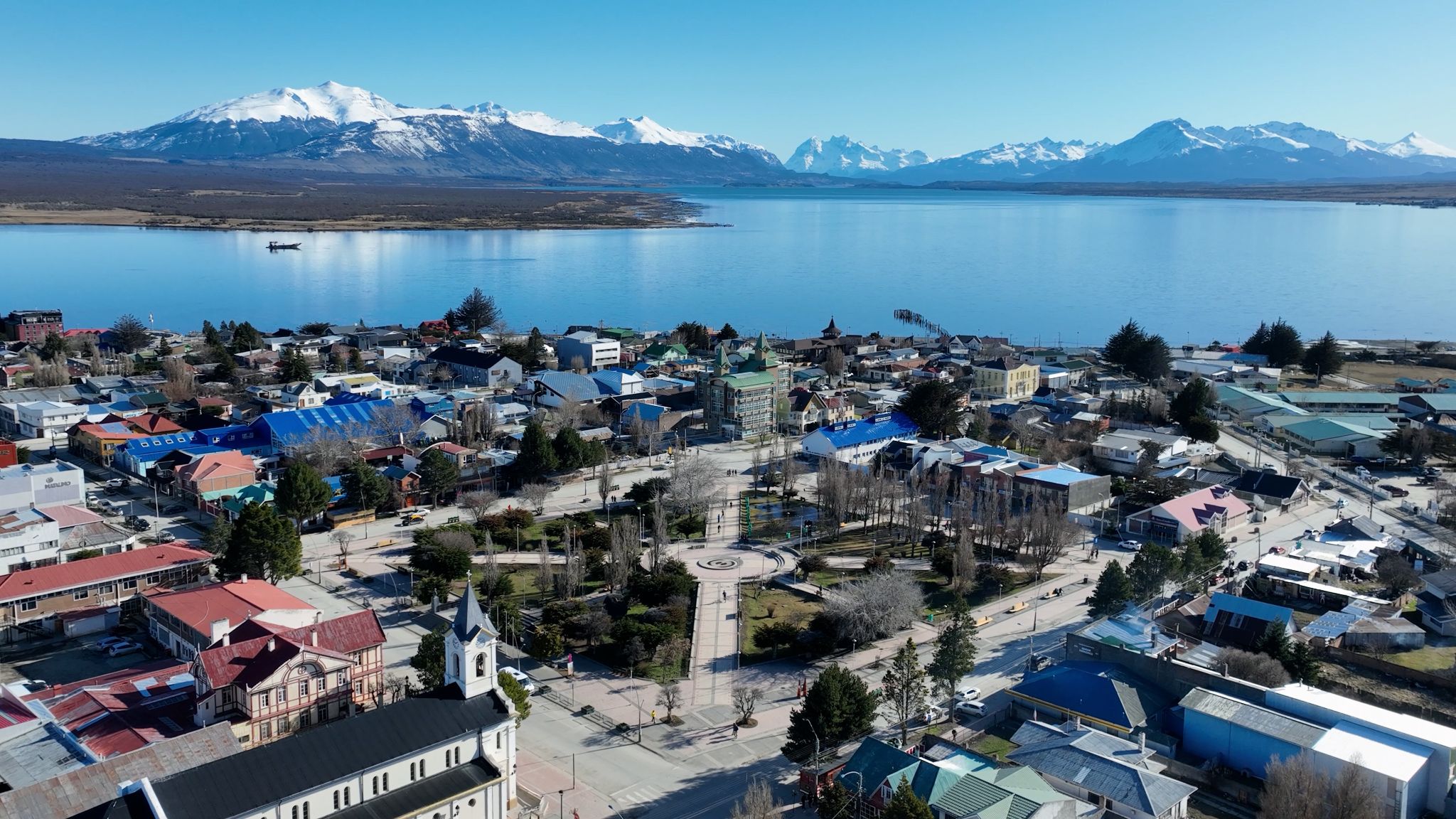

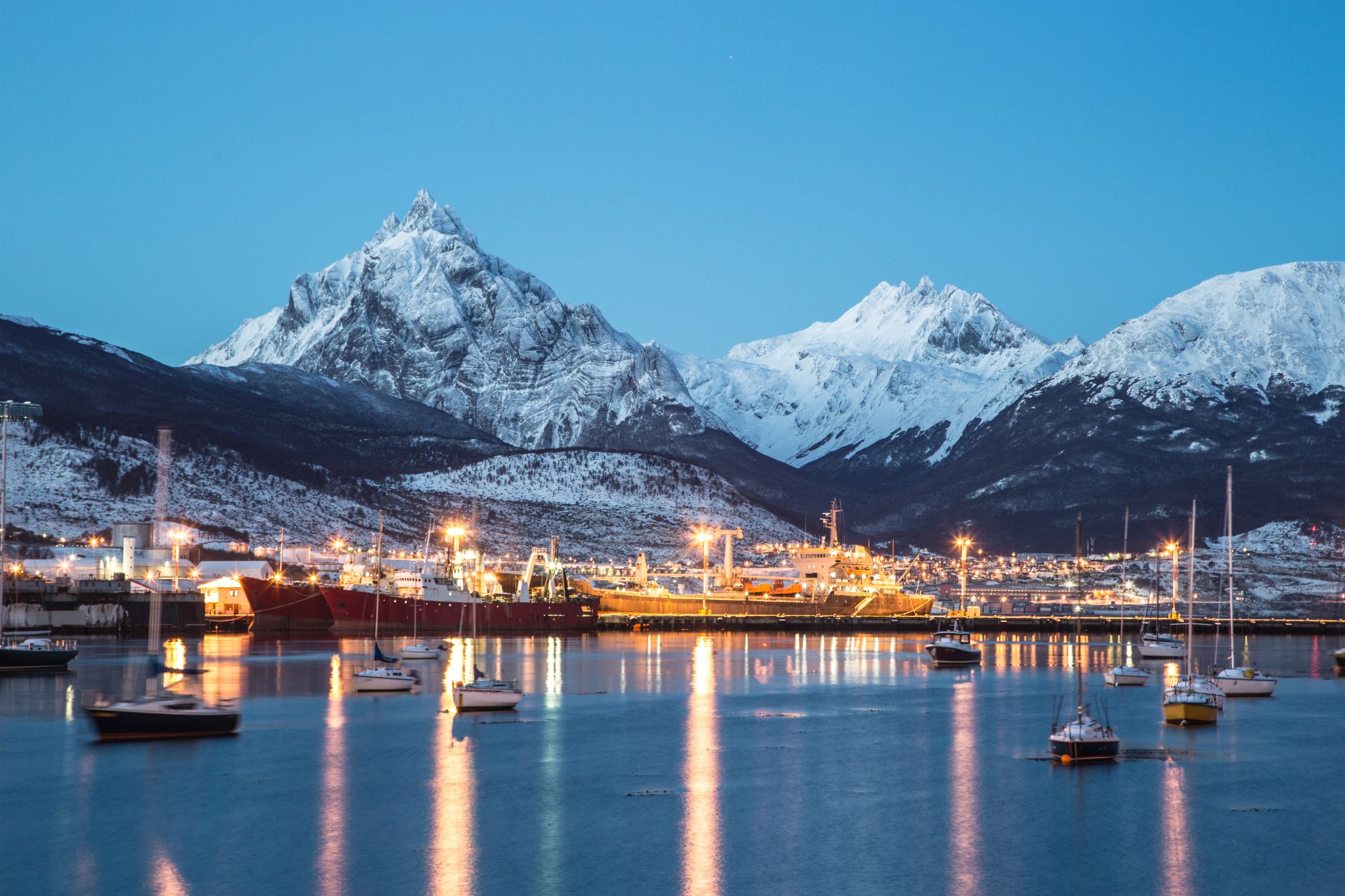
Ushuaia is the capital of Tierra del Fuego, Antártida e Islas del Atlántico Sur Province, Argentina. It is commonly regarded as the southernmost city in the world. Ushuaia is located in a wide bay on the southern coast of Isla Grande de Tierra del Fuego, bounded on the north by the Martial mountain range, and on the south by the Beagle Channel. It is the only municipality in the Department of Ushuaia, which has an area of 9,390 km2 (3,625 sq mi). It was founded October 12 of 1884 by Augusto Lasserreand is located on the shores of the Beagle Channel surrounded by the mountain range of the Martial Glacier, in the Bay of Ushuaia. Besides being an administrative center, it is a light industrial port and tourist hub.